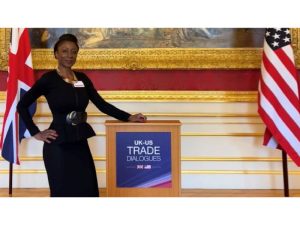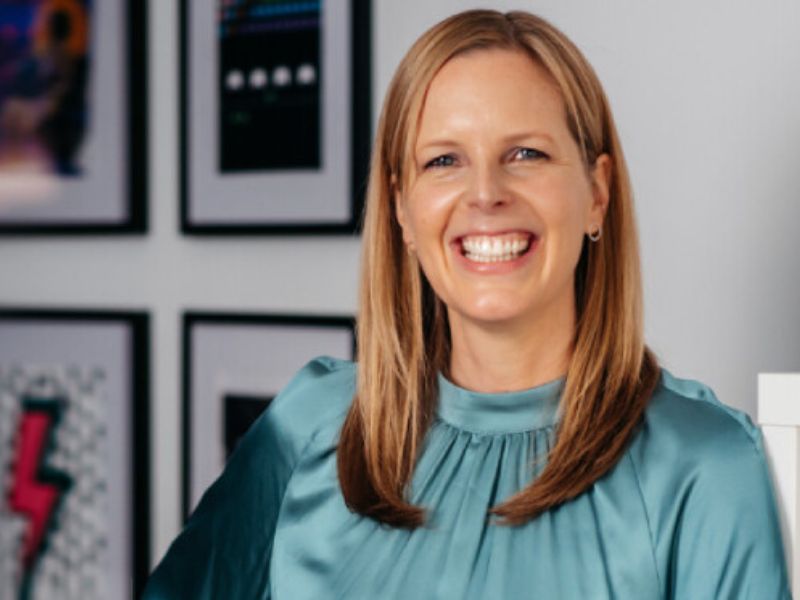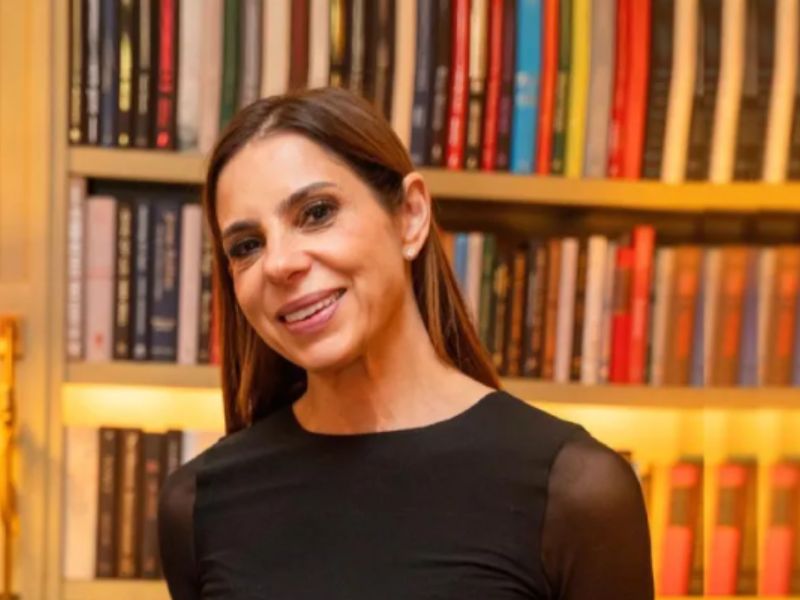Ayesha Ibrahim is a powerhouse female inspirational speaker and entrepreneur whose vision blends purpose, sustainability and social impact. As the Founder & CEO of Honey Corn, a cosmetics brand built on ethical values, she has championed environmentally conscious innovation while advocating for equitable business practices.
Recognised as the UK’s Leading Innovative Entrepreneur (2020) and shortlisted for the Small Good Business Award 2023, Ayesha has built a platform that “does good and looks good,” with global reach across media and trade sectors.
In this exclusive interview with the Female Motivational Speakers Agency, Ayesha Ibrahim shares not only her journey from nature-loving child to ethical business leader, but her insights on how organisations can embed sustainability, authenticity, and inclusion into their DNA.
What can businesses learn from your socially and environmentally responsible brand?
The best way to answer this question is really to tell my story about what led me to create my socially and environmentally responsible cosmetic brand, Honey Corn.
So, I’ll go back to the beginning. I grew up in London’s Green Belt, surrounded by a reservoir and woods, and I look back now and feel grateful to have grown up around nature and the environment. There were nature trails that spanned miles and miles of Northwest London, and I feel very lucky to have grown up there in such a lush and green environment.
Back in the early 90s, when I was 16 years old, I went on my first visit to West Africa, to Sierra Leone — my roots. Sierra Leone is a hugely rich country in terms of natural resources, however, it’s one of the poorest countries in the world.
Experiencing Sierra Leone for the first time was literally a world away from London, where I was born and bred. Nothing could have really prepared me for my visit and the organic and subsistence farming experience in a small Sierra Leonean village — truly being one with nature.
It was such an incredible experience, seeing crop farmers using practices that have been passed down for hundreds of years, maybe even since the beginning of time. It really blew my mind.
Fast forward 10 years, I returned to Sierra Leone and spoke with those same farmers who grew a variety of organic crops. I spent time with elders and custodians of the land, who explained the direct impact climate change was having on them. They told me how their crop cycles and seasons had changed — resulting in unpredictable harvesting, longer rainy seasons, spoiled crops, reduced yields and, in turn, poverty and hardship.
This really put a microscope on those who tend the land — who, in essence, feed the world. Their plight is that they are often the hardest workers yet sometimes the most forgotten, in terms of being paid or treated fairly. This is what really piqued my interest in the land, trees, crops, biodiversity, and how indebted this Earth is to farmers and pollinators like honeybees, who look after our flora and provide our food.
This experience made me socially and environmentally aware. Bees are among the most endangered species on our planet right now, and if there are no bees, there’s no honey — and essentially, no humanity.
Ever since that enlightening experience in Sierra Leone, I’ve made it my mission to do something to positively support the climate change crisis that we’re seeing play out around the world and on our doorstep.
Spending time with those farmers and hearing their stories gave me a passion to explore more about having a holistic approach to business, the environment, and sustainability — how they can intertwine to create synergy.
Honey Corn was created from the desire to make clean, botanic, organic, and natural skincare products — but also to create a positive, socially and environmentally conscious brand. Our mantra is “cosmetics with ethics”.
With our Beekeeper Campaign, every customer in the UK receives native wildflower seeds to sow locally — helping the bee population. According to David Attenborough, the UK is one of the most nature-depleted countries in the world, and this is our way to help.
The goal of Honey Corn is also to work with farmers in the developing world to become beekeepers — or apiarists — to increase crop yields and create additional income from honey. It’s a 360-degree or circular economy approach to business.
Around the time of starting Honey Corn, one of my first mentors was a founder and pioneer of Fairtrade. He worked with the late Anita Roddick, founder of The Body Shop, and with cooperative farmers in Ghana to supply ingredients.
Through him, and by following Anita’s story and career, I learned about the importance of building an environmentally and socially responsible brand. I really believe that people like Anita Roddick paved the way for so many indie cosmetics brands today.
Something I’m also passionate about is the Sustainable Development Goals. There’s a 2030 target, and we’re just seven years away from that. I strive to make sure that my cosmetics brand, Honey Corn, contributes in as many ways as possible to the 17 Sustainable Development Goals.
That’s really where my passion and compassion for the planet are rooted — because there is no Planet B. So, let’s help save the bees and feel good by doing good.
What was the biggest hurdle you faced while starting a business, and how did you overcome it?
I think the biggest hurdle I’ve faced while starting my business is really the lack of funding and investment opportunities for women in business. I’m at a stage where I’m looking to scale my business — my goal is for my brand to go international and compete with some of the biggest brands in the world.
However, marketing and social media require a lot of investment, whether financial or time-based. That’s been one of my biggest hurdles. It hasn’t held me back, though — I’ve found that even though there are hurdles, I always try to find solutions to the problem. Having hurdles has made me more creative and innovative in finding solutions that can elevate my brand and business.
It can actually be a good thing having hurdles — nothing is ever easy in business. Investment is hard to come by, but it keeps me thinking creatively about how to do more with less, and that’s helped me grow in an ethical and sustainable way.
Minimum order quantities can be another hurdle. Some suppliers only work with large orders, which can be tough without significant investment. But again, I’ve overcome that by being resourceful and creative. My mum always taught me to “make the best of what you’ve got,” and I’ve carried that mindset into business.
It’s hard to build an ethical business. There are a lot of shortcuts you can take that might compromise your values, but I’ve made it my mission to stay true to my ethics. HoneyCorn is my baby — it was born when my son was born — and I want to protect it.
Businesses have a responsibility to think about where their products come from and where they’ll end up — whether packaging can be recycled, is biodegradable, or sustainable. These are all factors I think about, and while they can be more expensive, they matter. I try to ensure that although my ingredients come from around the world, I work with UK partners wherever possible. That’s really important to me.
As an advocate for women in business, how can business owners create a more gender-inclusive working environment?
Creating a more gender-inclusive environment really means giving women a fair chance in leadership roles. For women in business, we really need allies — it’s a partnership between men and women.
Hybrid working, which has become more common post-pandemic, can help balance things out. As a mother and single parent, I find it vital to have the flexibility to spend time with my son — to pick him up from school, attend his activities, and still have time to focus on my business.
The traditional 9-to-5 model doesn’t suit everyone. With the online world open 24/7, flexibility is key. Sometimes I work until midnight to get things done. Flexible hours and hybrid work are essential to gender inclusivity.
Another reason I started my own business was because I felt I wasn’t being given the opportunities I deserved. I didn’t enjoy being micromanaged, and entrepreneurship gave me the freedom to create my own path. Many women are doing the same — starting their own businesses and creating their own rules.
Women becoming their own bosses helps level the playing field. There’s also been a cultural shift — people, especially women, now have more options and flexibility.
In my pop-up office shops, I’ve noticed that far fewer people work in offices now than before the pandemic. More are working from home, achieving a better work-life balance. It’s great to see, but we still need allies — people who’ll create opportunities and spaces for women.
That said, if opportunities aren’t given, women are creating their own. I believe “sisters are doing it for themselves,” and have been for a long time — may that continue.
This exclusive interview with Ayesha Ibrahim was conducted by Megan Lupton of The Motivational Speakers Agency.









